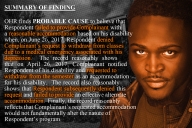You have /5 articles left.
Sign up for a free account or log in.
During the fall semester, I was invited to give a couple of talks and workshops at the University of Cincinnati. One of them was called Make, Bend, Break: The Potential of Digital Pedagogy (the link is to the Storify of the materials used). During the Q&A that took place afterwards, I was asked what the difference, based on my description, was between digital pedagogy and critical pedagogy. I said, in my mind, there isn’t any difference, except how many people would have come here today if I had called it critical pedagogy instead of digital pedagogy?
The person who asked the question was the only one who raised her hand.
More recently, I gave a talk about where I thought Faculty Development was heading towards in the 21st century. Instead of using an example in my professional life, I used an example in my personal one: my daughter learning to sew. Or rather, my daughter and I learning to sew. I talked about vulnerability, affect, and trust. I talked about love. I took a huge risk in talking about Faculty Development in these terms. But it was important, for me, to reflect who I am as a pedagogue in all of my practices, be it in the classroom, or in the workshop space.
I’m really excited to be able to participate, however tangentially, in this year’s iteration of Mooc Mooc on critical pedagogy, especially as I still work to integrate my new professional identity with my pedagogical practices. I was hired into this role because not only do I care about teaching, but also because I have good ideas and curiosity about teaching, too. But moving from one realm to another, even if they share “teaching” in common is challenging. In the era of big data and learning analytics, for someone to show up and start talking about love is a pretty radical thing.
Last week, it was about the critical in critical pedagogy, and this week we’re looking at feminist pedagogies. Reading through the suggested readings and prompts, I realized that I have been writing about this since the inception of my blog. My series on Peer-Driven Learning is a years-long reflection and meditation on integrating critical pedagogical practices in a marginalized classroom space. Bad Female Academic, another one of my blogging experiments, can be read as my attempt to make sense of my gendered self within academia.
For me, this week, reading bell hooks, Teaching to Transgress, has been important, but particularly as I think about Faculty Development, instead of pedagogy. Two lines stay with me: “Excitement in higher education was viewed as potentially disruptive of the atmosphere of seriousness assumed to be essential to the learning process.” This is perhaps nowhere more relevant than in Faculty Development, where excitement about teaching is to transgress the expected norms of faculty behavior, particularly at an R1. Not that there aren’t passionate and dedicated teachers, but the workshop or other forms of faculty development are strange places of silence and restraint around the subject. Or at least they can be.
But in the very next paragraph, hooks continues with “our capacity to generate excitement is deeply affected by our interests in one another, in hearing one another’s voices, in recognizing one another’s presence.” This, to me, is the biggest challenge. Workshops are such tightly controlled spaces, even more so than the classroom. Where it is easy, and in fact best practice, to engage in active listening when consulting with faculty members, the workshop space is one where the traditional norms dominate. Our expectations are that you sit for an hour and learn something from the person delivering the workshop. The shorter time frame and ephemeral nature makes it more difficult to engage participants in the kind of community building a more traditional classroom setting.
This isn’t to say that we can’t still foster and honor an interest in one another, learn from one another within this space. And the workshop isn’t necessarily the best place for sustained, long-term change in faculty pedagogy, for this very reason. But it is expected. And this is my challenge. How do I subvert, or rather transgress within the norms of the form? Hopefully it won’t take as long as it did for me to do it in the classroom setting. I have a lot more help and a lot more experience this time around.
Participating in MOOC MOOC has also helped me to see that one of the things I’ve been struggling with, in terms of writing, has been this idea that in my new role, I’m not allowed as much to talk about affect, or to talk about the challenges I’m facing as I transition into a new role and a new identity. It was like there was more space in my old role to be vulnerable. There was more space to talk about caring and love.
Maybe that’s true. But I just need to start making my own space again.





